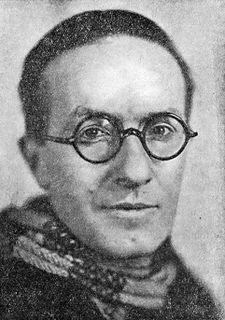A Quote by Ella Wheeler Wilcox
God made poor woman with no heart, But gave her skill, and tact, and art, And so she lives, and plays her part. We must not blame, but pity her.
Related Quotes
In my mind, I gave the woman gifts. I gave her a candle stub. I gave her a box of wooden kitchen matches. I gave her a cake of Lifebuoy soap. I gave her a ceilingful of glow-in-the-dark planets. I gave her a bald baby doll. I gave her a ripe fig, sweet as new wood, and a milkdrop from its stem. I gave her a peppermint puff. I gave her a bouquet of four roses. I gave her fat earthworms for her grave. I gave her a fish from Roebuck Lake, a vial of my sweat for it to swim in.
"And when you had made sure of the poor little fool," said my aunt - "God forgive me that I should call her so, and she gone where YOU won't go in a hurry - because you had not done wrong enough to her and hers, you must begin to train her, must you? begin to break her, like a poor caged bird, and wear her deluded life away, in teaching her to sing YOUR notes?"
Every woman whether rich or poor, married or single, has a circle of influence within which, according to her character, she is exerting a certain amount of power for good or harm. Every woman, by her virtue or her vice, by her folly or her wisdom, by her levity or her dignity, is adding something to our national elevation or degradation. A community is not likely to be overthrown where woman fulfills her mission, for by the power of her noble heart over the hearts of others, she will raise that community from its ruins and restore it again to prosperity and joy.
A woman's whole life is a history of the affections. The heart is her world: it is there her ambition strives for empire; it is there her avarice seeks for hidden treasures. She sends forth
her sympathies on adventure; she embarks her whole soul on the traffic of affection; and if shipwrecked, her case is hopeless — for it is a bankruptcy of the heart.
You must learn her. You must know the reason why she is silent. You must trace her weakest spots. You must write to her. You must remind her that you are there. You must know how long it takes for her to give up. You must be there to hold her when she is about to. You must love her because many have tried and failed. And she wants to know that she is worthy to be loved, that she is worthy to be kept. And, this is how you keep her.
Father, One day, a woman walked into my life. I hurt her deeply with the harshest words possible. I pushed her away as much as I could. But, she still came back to me. She is so much like me; I look at myself often when I look at her. She has the physical wounds that I have. The tears that fill my brain are flowing through her heart as well. I gave her those wounds. I made her cry. I should not have met her. I should not have allowed her to come into the life of a guy like me. Father, I'm regretting it. This is the first time... that I have ever regretted anything in my life.
The Winter Woman is as wild as a blizzard, as fresh as new snow. While some see her as cold, she has a fiery heart under that ice-queen exterior. She likes the stark simplicity of Japanese art and the daring complexity of Russian literature. She prefers sharp to flowing lines, brooding to pouting, and rock and roll to country and western. Her drink is vodka, her car is German, her analgesic is Advil. The Winter Woman likes her men weak and her coffee strong. She is prone to anemia, hysteria, and suicide.
She sat leaning back in her chair, looking ahead, knowing that he was as aware of her as she was of him. She found pleasure in the special self-consciousness it gave her. When she crossed her legs, when she leaned on her arm against the window sill, when she brushed her hair off her forehead - every movement of her body was underscored by a feeling the unadmitted words for which were: Is he seeing it?
My mother has made choices in her life, as we all must, and she is at peace with them. I can see her peace. She did not cop out on herself. The benefits of her choices are massive-a long, stable marriage to a man she still calls her best friend; a family that has extended now into grandchildren who adore her; a certainty in her own strength. Maybe some things were sacrificed, and my dad made his sacrifices, too-but who amongst us lives without sacrifice?
Her [Eleanor Roosevelt] father was the love of her life. Her father always made her feel wanted, made her feel loved, where her mother made her feel, you know, unloved, judged harshly, never up to par. And she was her father's favorite, and her mother's unfavorite. So her father was the man that she went to for comfort in her imaginings.
She had sacrificed her childhood to save her brothers; she loved her family above all else, and her spirits yearned to return home once more, to the wild forest and the land of mystic tales and ancient spirits whence he had taken her. That was the place of her heart, and if he loved her, he must let her go.
Where woman has taken her place in business she has found her method ready-shaped for her, and following that, she does her work,if with a certain amount of monotony, yet without undue fatigue. Her hours are fixed, and as a rule she gets needful change of scene as she goes to her business and returns to her home or the place where she lives. But the "home- maker" has not, nor can she have, any such change, and her hours are always from the rising of the sun beyond the going down of the same.





































